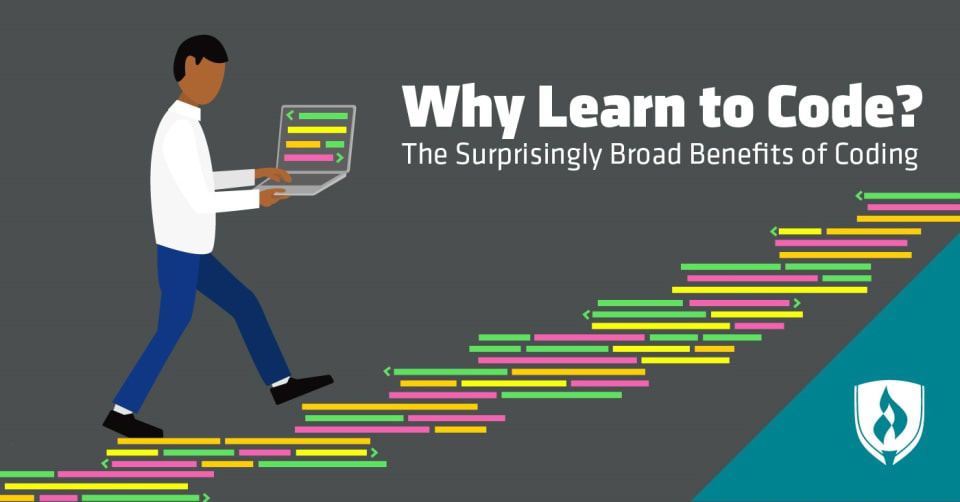How to Start with Coding: A Beginner's Guide
Coding, the language of the digital age, has become an essential skill in today's tech-driven world. Whether you're looking to build a career in technology, develop your own applications, or simply understand how the devices around you work, learning to code is a valuable endeavor. As someone who has navigated this journey, I, Vikas, am here to guide you through the first steps of becoming a coder.
## Why Learn to Code?
Before diving into the how, it's important to understand the why. Coding offers numerous benefits:
1. **Problem-Solving Skills**: Coding teaches you how to break down complex problems into manageable pieces and find solutions logically.
2. **Career Opportunities**: With the tech industry booming, coding skills can open doors to numerous job opportunities.
3. **Creativity**: Coding allows you to build and create anything you can imagine, from websites to mobile apps and more.
4. **Empowerment**: Understanding code gives you control over technology rather than being controlled by it.
## Step 1: Choose Your First Programming Language
The first step in learning to code is choosing a programming language. Here are some popular options for beginners:
- **Python**: Known for its readability and simplicity, Python is a great starting point. It's widely used in web development, data analysis, artificial intelligence, and more.
- **JavaScript**: Essential for web development, JavaScript is used to create interactive elements on websites. It's a good choice if you're interested in front-end development.
- **Java**: A versatile language used in web development, Android app development, and enterprise solutions. It's known for its robustness and portability.
## Step 2: Find the Right Learning Resources
With your chosen language in hand, the next step is to find quality learning resources. Here are some suggestions:
- **Online Courses**: Platforms like Coursera, Udemy, and Codecademy offer comprehensive courses on various programming languages.
- **Books**: There are countless books tailored for beginners, such as "Automate the Boring Stuff with Python" by Al Sweigart and "Eloquent JavaScript" by Marijn Haverbeke.
- **YouTube Tutorials**: Many experienced coders share their knowledge through video tutorials, which can be a great way to learn by example. For in-depth coding tutorials and tips, check out my YouTube channel, [FTC Academy](FTC Academy).
## Step 3: Practice, Practice, Practice
Coding is a skill best learned by doing. Here are some tips to get hands-on experience:
- **Build Projects**: Start with simple projects like a to-do list app, a personal blog, or a calculator. As you gain confidence, tackle more complex projects.
- **Participate in Challenges**: Websites like HackerRank, LeetCode, and Codewars offer coding challenges that can help you sharpen your skills.
- **Contribute to Open Source**: Joining open-source projects on platforms like GitHub can provide real-world coding experience and expose you to collaborative coding practices.
## Step 4: Join a Coding Community
Learning to code can be more enjoyable and effective when you have a support network. Consider joining coding communities such as:
- **Online Forums**: Sites like Stack Overflow and Reddit have active communities where you can ask questions and share knowledge.
- **Local Meetups**: Attend local coding meetups and workshops to connect with fellow coders in person.
- **Coding Bootcamps**: Intensive coding bootcamps can provide structured learning and networking opportunities.
## Step 5: Keep Learning and Stay Updated
Technology is constantly evolving, and so should your coding skills. Keep learning and stay updated with the latest trends and best practices. Follow tech blogs, subscribe to coding newsletters, and continuously explore new languages and frameworks.
## Additional Coding Tips
- **Break Problems into Smaller Parts**: When faced with a complex problem, break it down into smaller, manageable tasks.
- **Write Readable Code**: Write code that is easy to read and understand. Use meaningful variable names and add comments where necessary.
- **Learn Version Control**: Familiarize yourself with version control systems like Git to manage your code effectively.
- **Debugging Skills**: Learn how to debug your code. Tools like print statements and debuggers can help you identify and fix errors.
## Conclusion
Starting with coding can be a rewarding journey filled with challenges and triumphs. By choosing the right language, finding quality resources, practicing regularly, joining a community, and staying updated, you'll be well on your way to becoming a proficient coder. Remember, every expert was once a beginner, and with persistence and passion, you too can master the art of coding.
For more tutorials and tips, be sure to visit [FTC Academy](FTC Academy ) on YouTube. Happy coding!
Vikas
Senior Assistant Engineer, Samsung Display


Nice
ReplyDelete